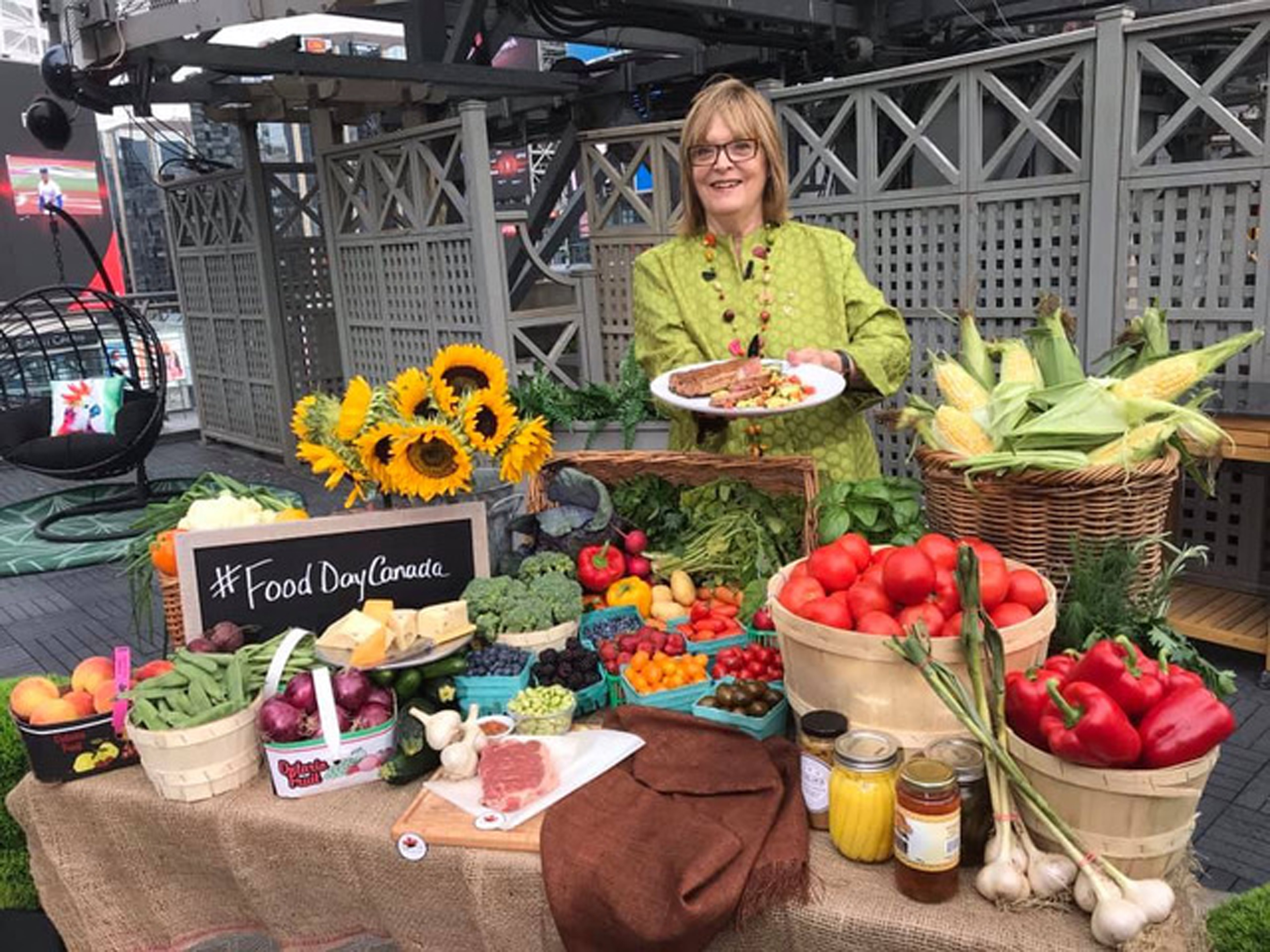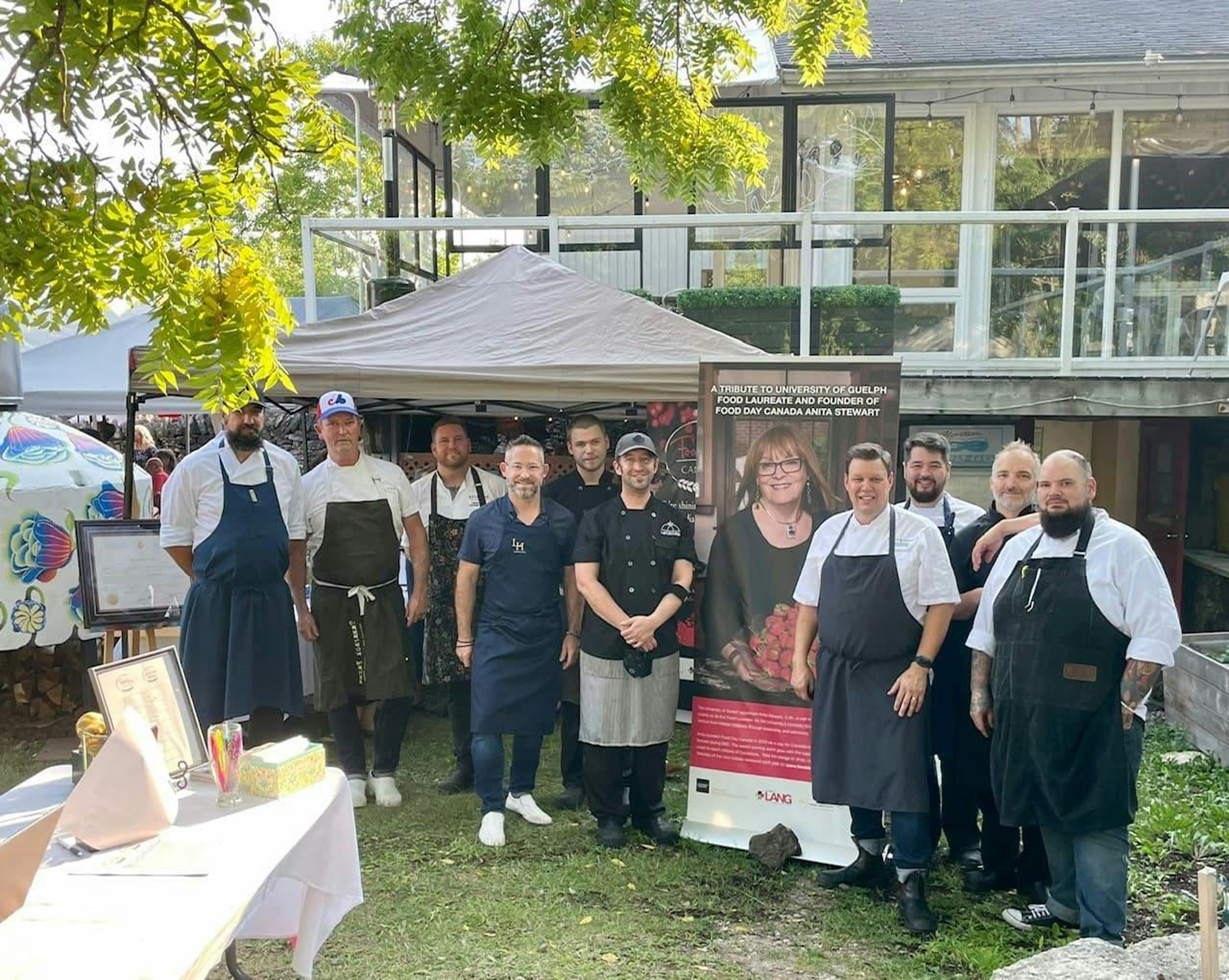Food Day Canada
In 2003, food writer, cookbook author and culinary crusader Anita Stewart launched what she called “the world’s largest barbecue,” encouraging Canadians—wherever they might be in the world—to grill Canadian-raised beef or other local products. Thousands of Canadians living across the country and in locations as diverse as Australia, Japan and the U.K., joined in this Canadian food celebration.
That barbecue evolved into a broader festival showcasing Canadian farmers, fishers, chefs and other food producers—the now annual event known as Food Day Canada. Food Day takes place across the country every summer; this year’s event will be held August 3, 2024.
For her work championing Canadian cuisine, Stewart received the Order of Canada and a host of other honours before her death in 2020 at the age of 73. Today, her legacy lives on: inspired by his mother, Chef Paul Stewart, the youngest of Anita's four sons, went on to train at the Stratford Chefs School, and his brothers Jeff and Mark also chose culinary careers. Now living on Vancouver Island, Paul serves as Food Day Canada's chair, working with his brothers to continue their mother's mission and amplify her message.
The evolution of Food Day Canada
Twenty years ago, when the first barbecue took place, Paul Stewart says that Canada didn’t have much of a food identity. “What Mum tried to showcase is that although we're a young country, we're a wonderful mixture of different ethnicities that are using Canadian ingredients," he says. He credits his mother with helping advance the idea that “we're more than maple syrup and beaver tails. We have a diverse food culture from coast to coast to coast.” Organizations like Food Day Canada have educated the public, chefs and other culinary professionals to be proud of Canada’s food bounty and its evolving food traditions, he continues, quoting one of his mother’s favourite sayings: “Canada is food, and the world is a richer place for it.”
Organizations like Food Day Canada have educated the public, chefs and other culinary professionals to be proud of Canada’s food bounty and its evolving food traditions, he continues, quoting one of his mother’s favourite sayings: “Canada is food, and the world is a richer place for it.”
"It's inclusive, and it's a way to celebrate together as Canadians. Sometimes, as Canadians, we’re pretty humble, but it's a good day to be proud of our food," Stewart says. If you can't make it to a Food Day Canada event, he suggests participating in other ways—like having a barbecue or dining at your favourite restaurant.
Connection and community through food
Growing up in Ontario, Stewart says that his mother would take him and his brothers to local farms so they could learn where their food came from. When she was working on a cookbook, “she’d give us 25 cents to do her mise en place and measure all her ingredients, because we had to test every recipe.”
Food was what connected the family and their community, he says, whether around the table, in the backyard or around the barbecue. “Mom was really good at making sure there was always a place at the table. We were a second home for a lot of the neighbourhood kids.” He recalls how his mother would feed anyone who turned up with one-pot dishes, big salads and loaves of bread—fresh homemade dishes that weren’t necessarily common in their own homes.
After their mother’s passing, Stewart and his brothers began strategizing ways to continue her legacy and target pressing issues like food insecurity and food waste. They decided to help ensure that it wasn’t only people who could afford to shop at farmers’ markets or eat in fine-dining restaurants who could enjoy Canada’s bounty. In addition to his role chairing the Food Day Canada board, Paul is head chef of the Victoria Cool Aid Society, which prepares, delivers and serves meals to Victoria’s most vulnerable populations. He’d like to see organizations like Food Day Canada take a leading role in promoting programs that will aid the food insecure, whether to provide education in raising or preparing food or to reclaim unsold food products.
“Food in Canada needs to go to hungry Canadians,” he says. “And as Canadians, we need to be looking at where our food is from and how to have access to food 365 days a year. It's not just one day. It's every day is Food Day, Canada.”





